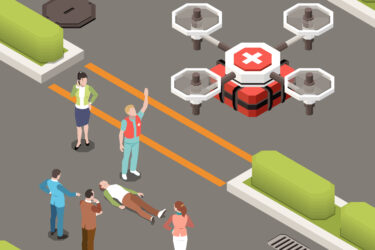
The 21st Century Cures Act – passed overwhelmingly by Congress in recent days – will have broad implications on health IT and medical technology.
The $6.3 billion bill is probably best known for:
- Accelerating the path to FDA approval of drugs and medical devices by giving the Food and Drug Administration new authority in this area;
- Providing $4.8 billion to the National Institutes of Health (subject to annual appropriations), including $1.8 billion for Vice President Joe Biden’s Cancer Moonshot initiative and funding for the president’s Precision Medicine and BRAIN initiatives;
- Allocating $1 billion over two years to states to fight opioid abuse;
- Being opposed by Sens. Elizabeth Warren, D-Mass., and Bernie Sanders, I-Vt., and a few other Democratic leaders, who denounced the bill as a handout to the drug industry. (The bill passed the Senate 94-5.)
Writing in The New York Times last month, Jennifer Steinhauer and Sabrina Tavernise described the legislation as addressing “problems that touch nearly every American life.”
The Cures bill has some notable health IT provisions:
- Creates a reporting system on electronic health record (EHR) usability; interoperability and security by stakeholders.
- Sets up a provider directory aimed to facilitate data exchange and favoring solutions to interoperability originating in the private sector;
- Directs the Government Accountability Office to evaluate the current state of so-called “patient matching“ to their EHRs and determine steps the Department of Health and Human Services (HHS) can take to link patients to their records and avoid duplication.
- Authorizes the HHS Office of the Inspector General to investigate and penalize data blocking offenses;
- Broadens the Office of the National Coordinator on Health IT (ONC)’s authority over health IT certification, and combines the ONC’s Health IT Policy and Standards Advisory Committees.
Thinking about the impact of the Cures bill only in the context of EHRs misses the bigger picture, however. Funding for BRAIN, Precision Medicine and the Cancer Moonshot initiatives will accelerate scientists’ creation and use of large patient data sets and open up those data sets to researchers to advance research development.
“We should think of technology as neither revolutionary or remarkable unless it helps everyone,“ said D.J. Patel, chief U.S. data scientist with the White House, speaking at the Health 2.0 conference this fall about the importance of open data for these three big initiatives that received funding via the Cures bill. You can hear Patel talk about data and the Cures bill on NPR’s Science Friday on Dec. 9.









